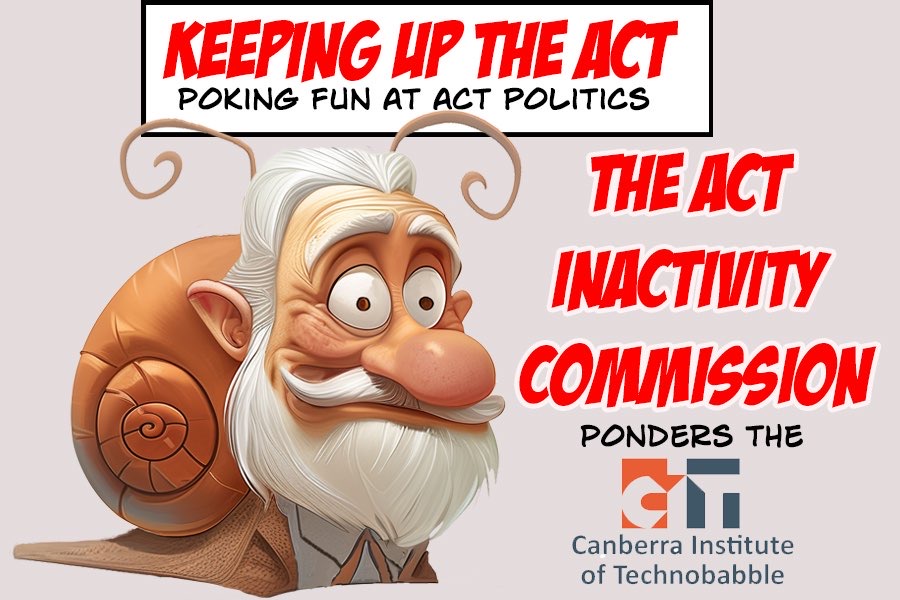THE Senate is frustrating the Abbott government, the Greens hold the balance of power in the ACT and the Upper House in NSW is poised to test the re-elected government of Mike Baird… minority government is a good thing for healthy public policy, it provides the opportunity for “minority policy”.

Senators such as Nick Xenophon, Ricky Muir, Jacqui Lambie and Glenn Lazarus have a keen role to play as do the Greens both in the federal parliament and here in the ACT.
Prosser and Denniss have long experience as political advisors and now, as academics, bring a different understanding regarding the exercise of power. “Minority Policy: Rethinking Governance When Parliament Matters” critically examines the role played by cross-bench members and minority governments in influencing policy outcomes within parliaments.
Prosser suggested to me that one of the most interesting differences in the mastery of “minority policy” was the great skills exercised by former Prime Minister Julia Gillard compared to the rudimentary efforts of the current PM Tony Abbott. Gillard regularly achieved support for her policies and her legislation even though she did not have majority support in either of the houses of the federal parliament. In marked contrast, Abbott struggles to secure support from the cross-benches for some of his most fundamental ideas.
Even when a government does have majority, the authors point out how power can be exercised by those who they describe as “marginal members”.
There are times when “marginal members” can delay, block or reject a Bill. However, there are also times when other action can be taken to significantly influence public policy. For example, moving amendments can be used as a tool to modify policy, to delay the passage of a Bill or to embarrass governments.
No doubt there will always be the argument that the prime minister, chief minister or premier has a “mandate” to deliver on their own agenda. It is simply a crude attempt to bully cross-benchers (or marginal members). Katy Gallagher and Andrew Barr have not stooped to this.
With only one majority government in the ACT since self-government, the local MLAs have learnt the importance of working with the cross-benches. Indeed, a close working relationship was embraced when I became a minister in the Carnell Liberal government and when Greens Shane Rattenbury was appointed by Labor as a minister in the current government.
This is in marked contrast to Kevin Rudd and Abbott who attempted to drop the “mandate” card. Cross-bench members have as much a mandate as any other member. They exercise a single vote earned at election. When major parties decide not to deal with the alternative party marginal members’ power increases significantly. When Abbott, as Opposition Leader, decided to oppose almost all government legislation he handed significant power to the cross-benches in both chambers.
About half of Australians think a minority in the Senate is a good thing (48 per cent), according to a survey conducted by the Australia Institute that is reported in the book. This far outweighs the 22 per cent who think it is a bad thing. 60 per cent of people think “negotiating compromises with independents and minor parties is an important part of being a responsible government” and only 13 per cent expressed the opposite view.
The final words on the value of the book and on “marginal members” belongs to former federal independent MP Tony Windsor: “This book provides insight into how policy is really made and how politics really works”.
He nails the policy outcome on the head when reflecting in the book on his time with the balance of power: “Nothing comes to mind that gives us a minority view imposed on the majority of the voters”.
Michael Moore was an independent member of the ACT Legislative Assembly (1989 to 2001) and was minister for health.
“Minority Policy: Rethinking Governance When Parliament Matters” (Melbourne University Press), order through tai.org.au
Who can be trusted?
In a world of spin and confusion, there’s never been a more important time to support independent journalism in Canberra.
If you trust our work online and want to enforce the power of independent voices, I invite you to make a small contribution.
Every dollar of support is invested back into our journalism to help keep citynews.com.au strong and free.
Thank you,
Ian Meikle, editor





Leave a Reply